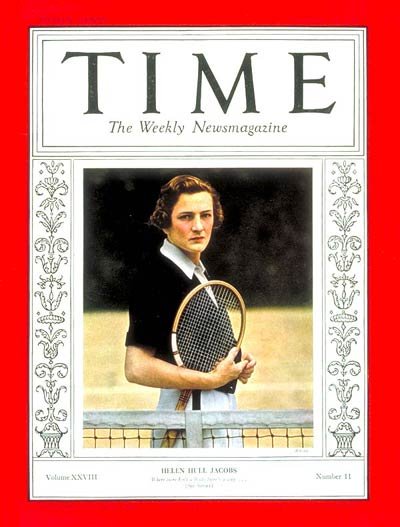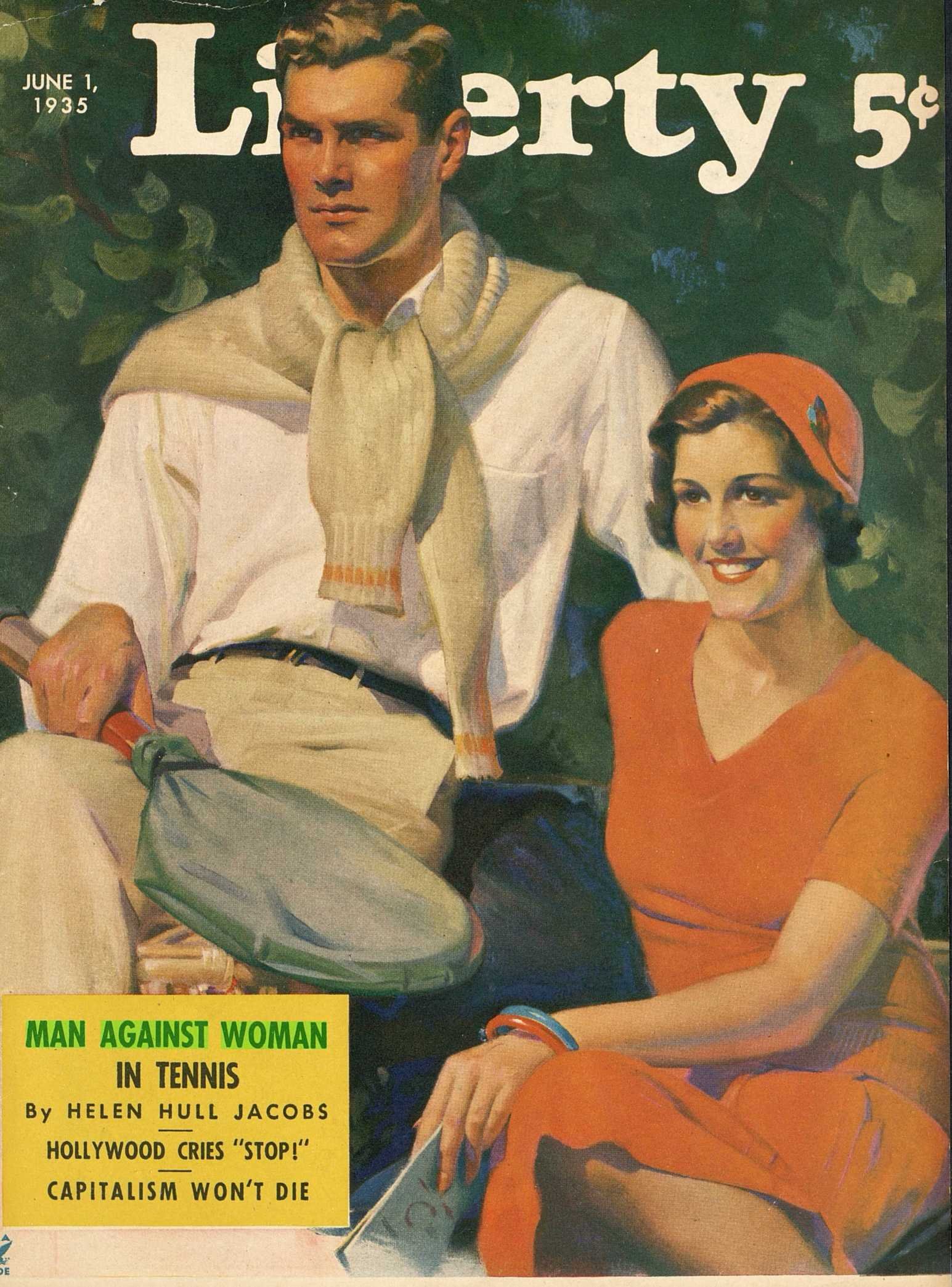🎾0️⃣3️⃣1️⃣ Helen Hull Jacobs
Meet Helen Hull Jacobs, a U.S. tennis player, three-time French Championship finalist, and on-court fashion pioneer who, through the “Battle of the Helens,” helped forge one of the sport’s first fierce rivalries.
Jacobs was born August 6, 1908, in Globe, Arizona, but spent her formative years in Berkley, California. She honed her game at the city’s famed Berkeley Tennis Club and at 14-years-old played a practice set against her future on-court rival, Helen Wills (arranged by her coach, Pop Fuller). Two years later, Jacobs won the National Junior Tennis Championship, a feat she repeated in 1925.
The right-handed player attended University of California (Class of 1930), competed for the U.S. Wightman Cup Team from 1927 until 1937, and notched a series of grand slam wins throughout the 1930s. She won eight U.S. championships, including a 1933 singles title win over rival Helen Wills, and Wimbledon in 1936, the same year she finished ranked the world’s number one tennis player.
At the 1933 U.S. national championships she made waves when she sported shorts, the first female player to do so at a grand slam event. During the Second World War, Jacobs served as a U.S. Naval intelligence officer. She retired from tennis in 1947 after an achilles tendon injury, but not from life. She authored numerous books, designed ladies’ sportswear, and inspired generations as the gracious runner-up.
The Sports Diplomacy Connection
Helen Jacobs (second from left) at Roland Garros, Image: Gallica.fr
Jacobs communicated, represented, and negotiated about U.S. tennis culture, sportsmanship, and female athleticism to the French and global audiences. Although Jacobs never won the French Championship, she reached the finals three times (singles 1930, 1934; doubles 1934).
“The tennis world champion, Miss Helen Jacobs, who has just arrived in Paris, is, in the city, a charming young girl, with a determined look and a pleasant face. She speaks French with a little hesitation, but also a charming accent which gives her lyrics a lot of spice,” reported Paris-midi on May 4, 1931.
The paper noted how, despite the excuse of tennis, Jacobs intended to take full advantage of the capitol city’s culture and shopping. “I will take the opportunity to visit your Colonial Exhibition and unfortunately make a lot of purchases,” she confided,
“I am delighted to be in France. You have the best players: Cochet, whom I will see when he returns from Romania! Boussus, who is ‘formidabel’ [sic]; Borotra, Brugnon, and Miss Mathieu, of whom I'm really ‘a little afraid,’ although I'm in good shape. Provided that I don't let myself be ‘excited’ by your pleasures and that I don't lose ‘my’ form!” [1]
Jacobs also told the French press that she wanted to play legend Suzanne Lenglen.
Le Miroir des sports : publication hebdomadaire illustrée. 1935-07- 09. Image: Gallica.fr
The American’s progression on the game’s greatest stages was documented by the French press like Miroir du Sport and French colonial press, including Saigon Sportif and L’Echo sportif de l’Afrique du Nord, particularly her September 1933 U.S. Open win over Wills, the only time she beat her rival.
“Miss Jacobs can serve as an example to players from all countries and to French women in particular who leave too little room for physical education,” opined À la page in August 1934.
“Some have a technique as good as that of Miss Jacobs; some even show more intelligence in their matches; none appear on a court with such good physical means. Miss Jacobs knows how to run, she knows how to press her shots, she can hold three long sets, because her breath is excellent. Which French player is capable of physically exerting herself as much – and without prejudice – as the American champion? None!”[2]
[1] “Miss Helen Jacobs était venue demander à Suzanne Lenglen de lui accorder une revanche,” Paris-midi, May 4, 1931, p2.
[2] “Le tennis aux États-Unis,” À la page, August 23, 1934, p542.
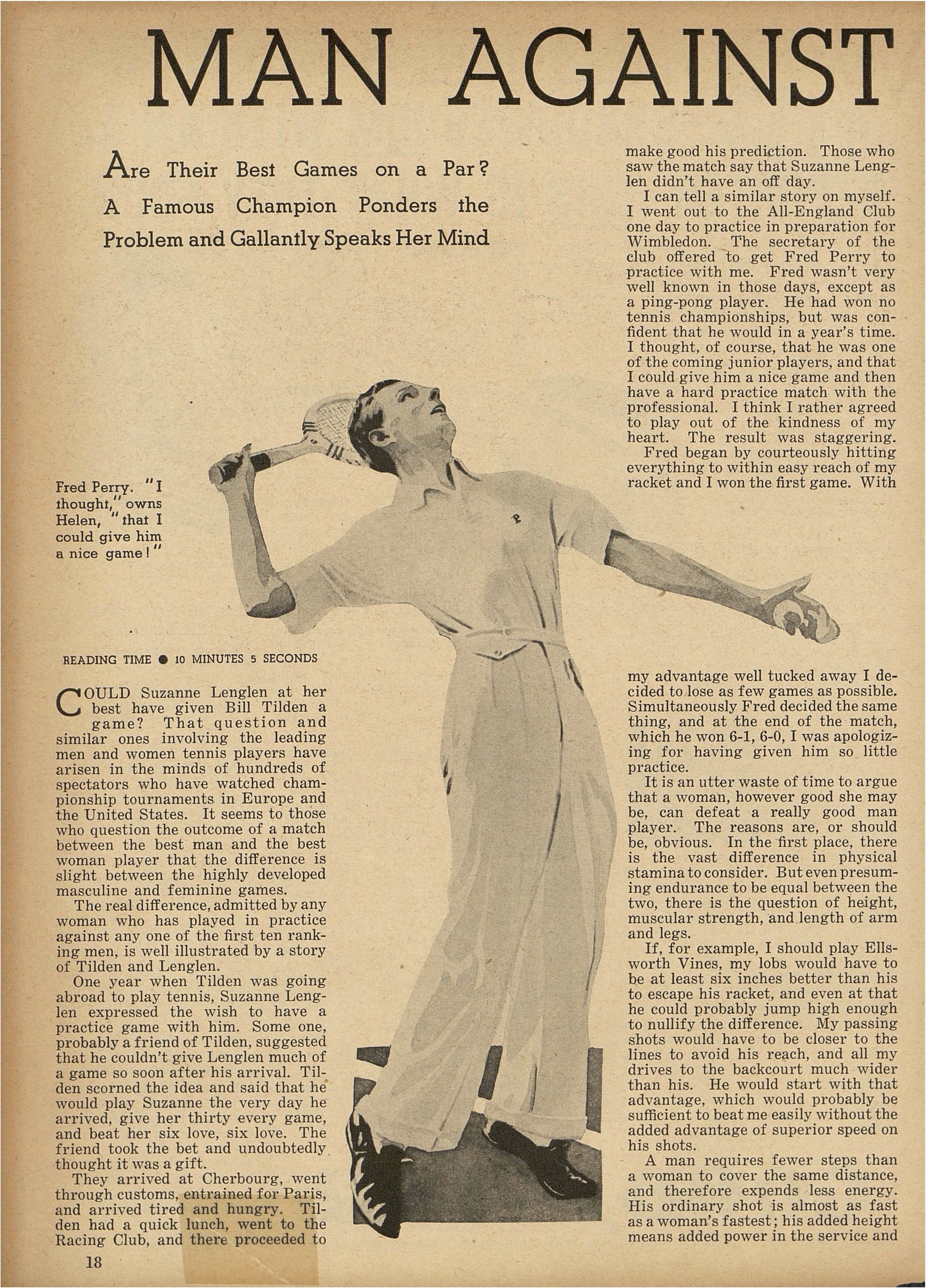
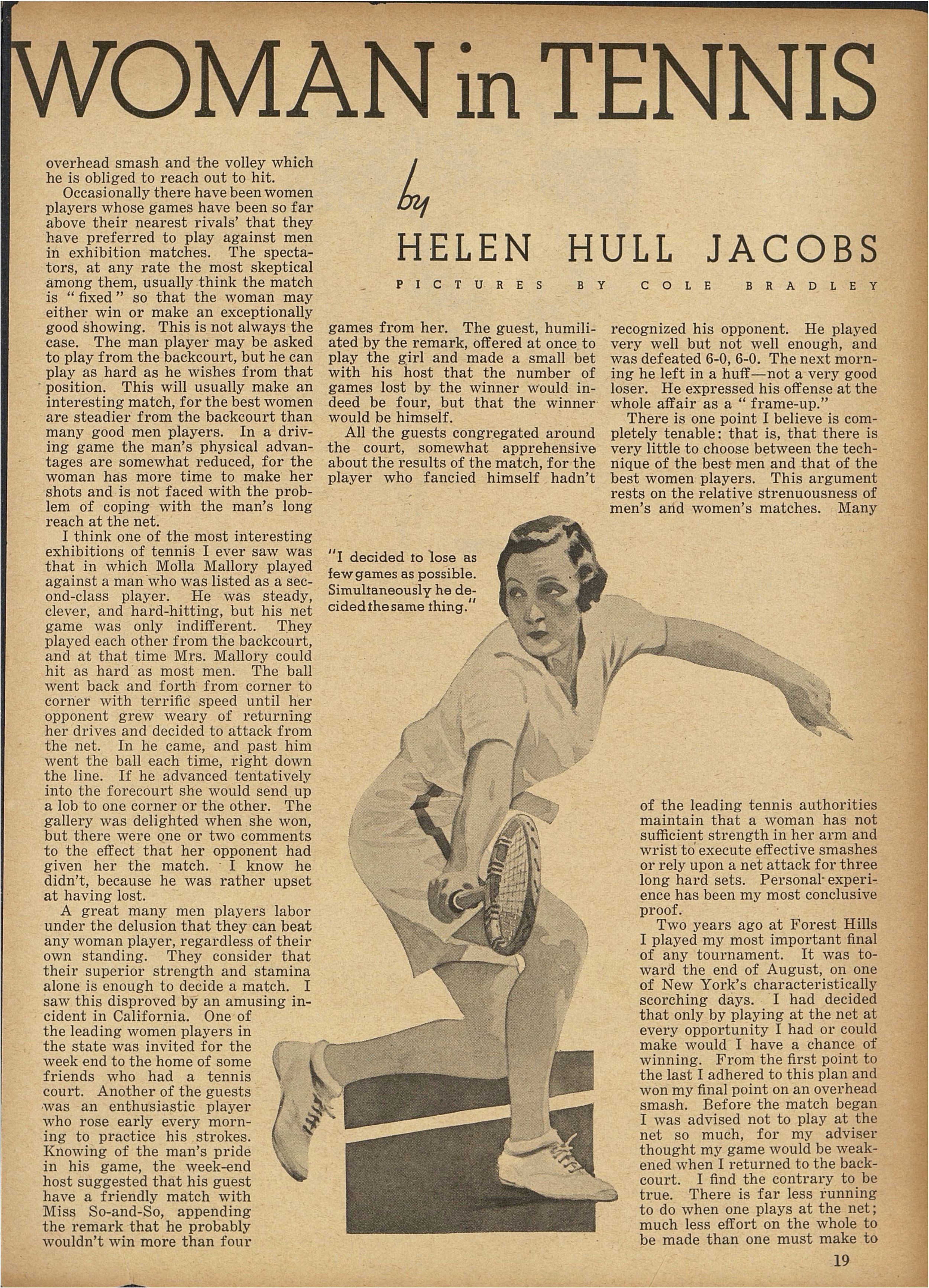
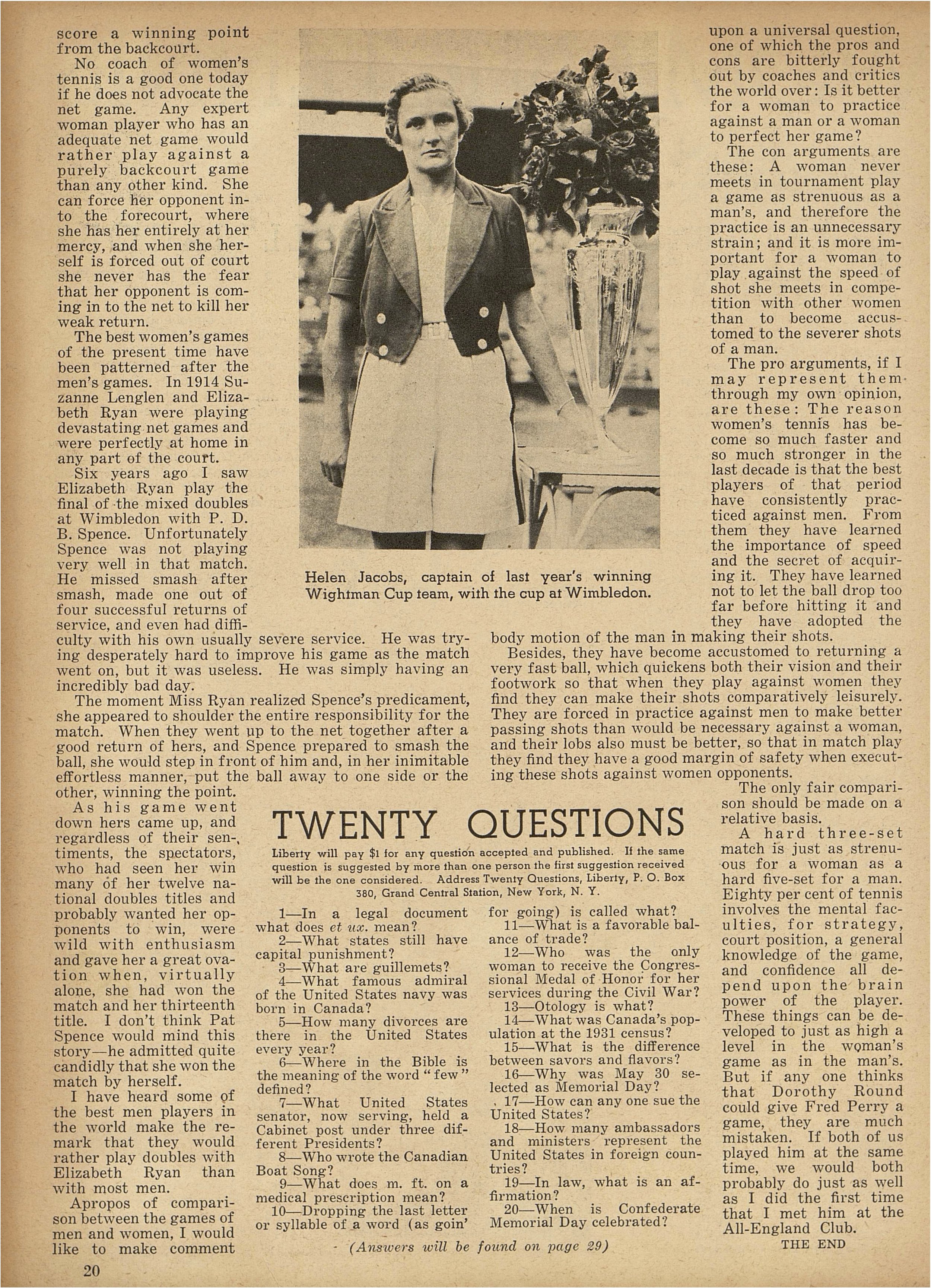
Mapping the Connection
From Globe, Arizona to Paris, France
Further Reading
[E] “Helen Hull Jacobs,” International Tennis Hall of Fame.
[E] Susan B. Adams, “Helen Jacobs, Tennis Champion in the 1930s, Dies at 88,” New York Times, June 4, 1997.
[F]] “Miss Helen Jacobs était venue demander à Suzanne Lenglen de lui accorder une revanche,” Paris-midi, May 4, 1931, p2.
[F] “Le tennis aux États-Unis,” À la page, August 23, 1934, p542.
How to Cite This Entry
Krasnoff, Lindsay Sarah. “Voices: Helen Hull Jacobs,” FranceAndUS, https://www.franceussports.com/voices/031helen-hull-jacobs. (date of consultation).

